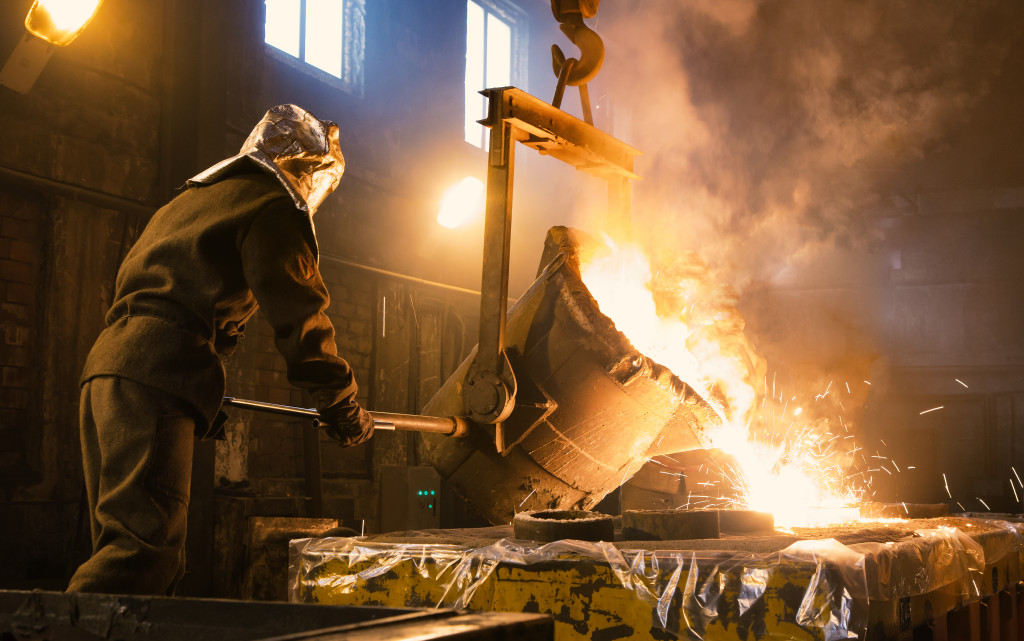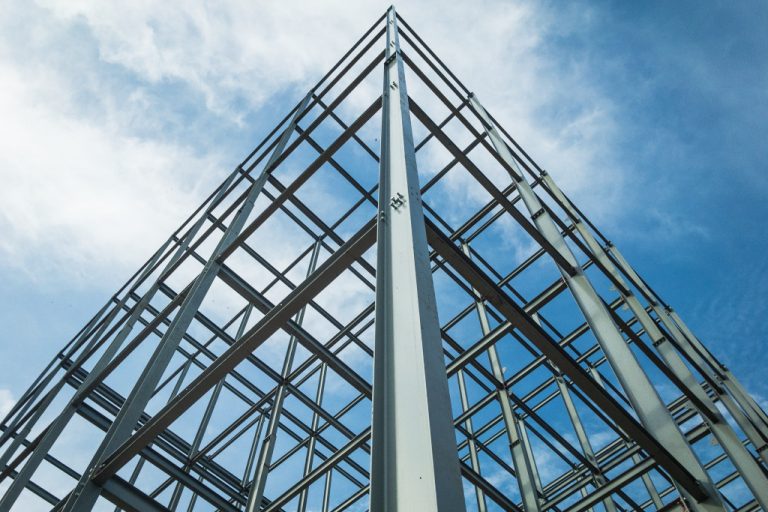If you want to venture into the construction industry, getting into steelworks is one of your best options. Steel is a highly common material in all construction projects. It’s used on almost all types of structures, from towers to kitchen counters.
Considering that, a steelworks business will promise hefty profits. But the competition is tough, and the market is over-saturated. Plus, the company itself is far from glamorous. Steel contractors are just like general contractors. They work on-site and oversee every procedure. Though steel contractors don’t need to perform labor, it’d be advantageous for them to learn it nonetheless. Besides, succeeding in any trade takes knowing the trade.
That said, here are some crucial pointers for starting a steelworks business:
The Process of Making Steel
Steel is made by heating iron ore in a blast furnace. This process removes the ore’s impurities and allows the pure iron to settle at the bottom of the blast furnace. The molten iron is then taken off to be mixed with other compounds, such as manganese, carbon, and other metals. These compounds define the strength and elasticity of the finished steel.
Steel is not just a single type of metal. It also has different kinds, such as:
- Carbon steel — steel with high carbon content becomes cast iron, while those with medium carbon content is often used for structural steelworks. Lastly, steel with low carbon content is malleable and generally used for decorative structures (e.g., wrought iron fence).
- Galvanized steel — steel mixed with zinc. It’s resistant to corrosion. As such, it’s mainly used for bridges to ensure that the structure won’t corrode from the elements.
- Alloy steel — this type of steel is mixed with carbon and other metals to make it tougher and more rigid.

Fabricating Steel
There are different ways to fabricate steel. Structural beams, for example, are cut using laser, notches, and punches. All types of steel are cut, and if they’re malleable, they’d also be bent.
Several pieces of steel are also joined together to create a specific structure, such as fences. Welding is the fabrication process that makes this happen. Welders apply heat and pressure to the steel so that it would fuse with another steel. The welded parts are called joints or weldments.
Soldering and brazing are two other processes that join steel together. But they don’t melt the base metal, as welding does. They also use lower temperatures for applying heat, contrary to welding.
Cleaning welded steel requires a specific process called steel weld cleaning. Trusted steelworks companies like TIG Brush™ offer high-quality steel weld cleaning products. The purpose of this process is to increase the corrosion resistance of steel. It also cures the discoloration that occurs on steel after welding.
For the steel to be prepared for the riveting process, laser cutting is done. It melts holes through steel, so it’s sometimes called laser melting. Other applications of laser cutting include creating designs on a metal sheet. If you’d manufacture gates, you might have customers looking for customized gate designs, and laser cutting will allow you to satisfy that demand.
Residential Steel Products
Residential steel products, such as gates and fences, are among the most in-demand steel products. Over 1.5 million houses are built in the U.S. each year. Fences and gates may not be common in average homes, but more residential properties may seek them now. The privacy and security benefits of fences and gates can attract more buyers.
Two types of steel are commonly used for building residential fences: cast iron and wrought iron. Cast iron is non-malleable, making it incapable of sporting intricate designs and patterns. But its rigid look is trendy among contemporary homes. However, cast iron is largely replaced by stainless steel now. Only industrial settings may favor cast iron today.
Wrought iron is best for decorative gates. They’re often seen in stately homes. But its malleability makes it capable of sporting contemporary looks as well. However, both wrought iron and cast iron are susceptible to corrosion. People often paint them to slow down the rusting process, but paint chips over time.
Powder coating is a better alternative. It’s highly durable and won’t fade, chip, or crack over time. It can also be applied to outdoor metal furniture.
With this basic knowledge about steelworks, you can start your business with a clearer picture of what you’ll be experiencing in the industry. This is a costly business venture, but it would pay back well if you stand out in its over-saturated market. Besides construction, you can also market to the automotive, manufacturing, mining, and aeronautics industries.




